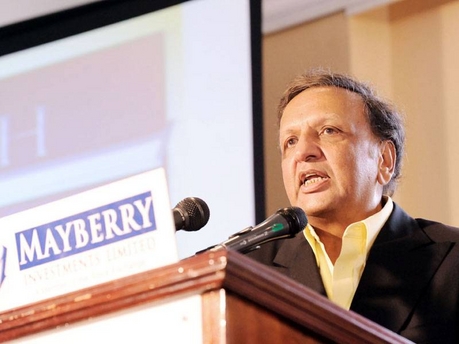Businessuite News24
Saint Lucia Making Strides in Advancing Growth Agenda

Businessuite News24
Jamaica Records US$2.4B in Earnings From 2.3 Million Visitor Arrivals Since Start of 2025
Business Insights
Unilever’s Ice Cream Breakup: Why the World’s Biggest Ice Cream Maker Is Spinning Off Its Sweetest Business
In the Caribbean, consumers are unlikely to see immediate changes. Magnum, Cornetto, and Ben & Jerry’s will still be on shelves. But behind the scenes, distribution contracts, manufacturing strategies, and regional employment structures may evolve. For Unilever, it is one more step towards becoming a leaner consumer goods giant, one that believes future growth lies not in ice cream freezers but in personal care aisles and health cabinets.
Businessuite News24
Jamaica Market Entry via Acquisition: Uber Eats’ Potential Playbook
“An Uber Eats acquisition would be a seismic shift for Jamaica’s food delivery market—creating opportunities for founders and consumers, but risking local economic leakage, higher merchant fees, and reduced entrepreneurial diversity.”
Business Insights
Jamaica, Is Uber Eats Coming Soon?
Local platforms aren’t just incumbents—they’re innovators with diversified offerings, profitability, and brand loyalty. If they move fast—improving UX, expanding services, and forging local partnerships—they can front run Uber Eats, closing the window on foreign intrusion.
Businessuite News24
Scores of Entrepreneurs Display Jamaican-Made Products at ‘Christmas in July’ Trade Show
-

 Businessuite Women2 weeks ago
Businessuite Women2 weeks agoData Mavericks of the Caribbean: Raquel Seville & Dataffluent’s Visionary Rise
-

 Businessuite News244 weeks ago
Businessuite News244 weeks agoIndia’s 10-Minute Delivery Boom: A Blueprint for Disruption—and a Wake-Up Call for Caribbean Courier Companies
-

 Businessuite News24 International4 weeks ago
Businessuite News24 International4 weeks agoIndia’s 10-Minute Delivery Boom: Reshaping Retail, Logistics, and Urban Spaces
-

 Businessuite News243 weeks ago
Businessuite News243 weeks agoBusinessuite Special Report P4 | Homegrown Disruption: InterMetroONE & Walkbout.com Position Jamaica’s Answer to Uber–Airbnb
-

 Businessuite News246 days ago
Businessuite News246 days agoJamaica Records US$2.4B in Earnings From 2.3 Million Visitor Arrivals Since Start of 2025
-

 Corporate Feature4 weeks ago
Corporate Feature4 weeks agoNot Just Vanity Metrics: A Digital Leader Focused on What Matters
-

 Business Insights3 weeks ago
Business Insights3 weeks agoBusinessuite Cover Story: Too Much Power? Governance Risks Rise as Tyrone Wilson Consolidates Leadership at Kintyre and Visual Vibe
-

 Business Insights3 weeks ago
Business Insights3 weeks agoBusinessuite Special Report P1 | When Titans Unite: How an Uber–Airbnb Alliance Could Redefine Travel in Jamaica and Beyond








 Meanwhile, Mr. Bartlett anticipates a significant increase in tourism earnings for the current quarter, compared to the corresponding period last year, which is attributable to the sector’s strong rebound from the disruptions caused by Hurricane Beryl.
Meanwhile, Mr. Bartlett anticipates a significant increase in tourism earnings for the current quarter, compared to the corresponding period last year, which is attributable to the sector’s strong rebound from the disruptions caused by Hurricane Beryl.
 Unilever’s decision to separate its global ice cream business marks a turning point for the British-Dutch consumer goods giant, ending a long chapter defined by household brands like Magnum, Ben & Jerry’s, and Wall’s. For Caribbean markets, including Jamaica and Trinidad where Unilever’s ice cream presence has been part of local summers for decades, the announcement signals more than just a corporate restructuring – it reveals how major multinationals are rethinking their portfolios in an era where margins matter as much as market share.
Unilever’s decision to separate its global ice cream business marks a turning point for the British-Dutch consumer goods giant, ending a long chapter defined by household brands like Magnum, Ben & Jerry’s, and Wall’s. For Caribbean markets, including Jamaica and Trinidad where Unilever’s ice cream presence has been part of local summers for decades, the announcement signals more than just a corporate restructuring – it reveals how major multinationals are rethinking their portfolios in an era where margins matter as much as market share.





 1. Deep Local Insight
1. Deep Local Insight





